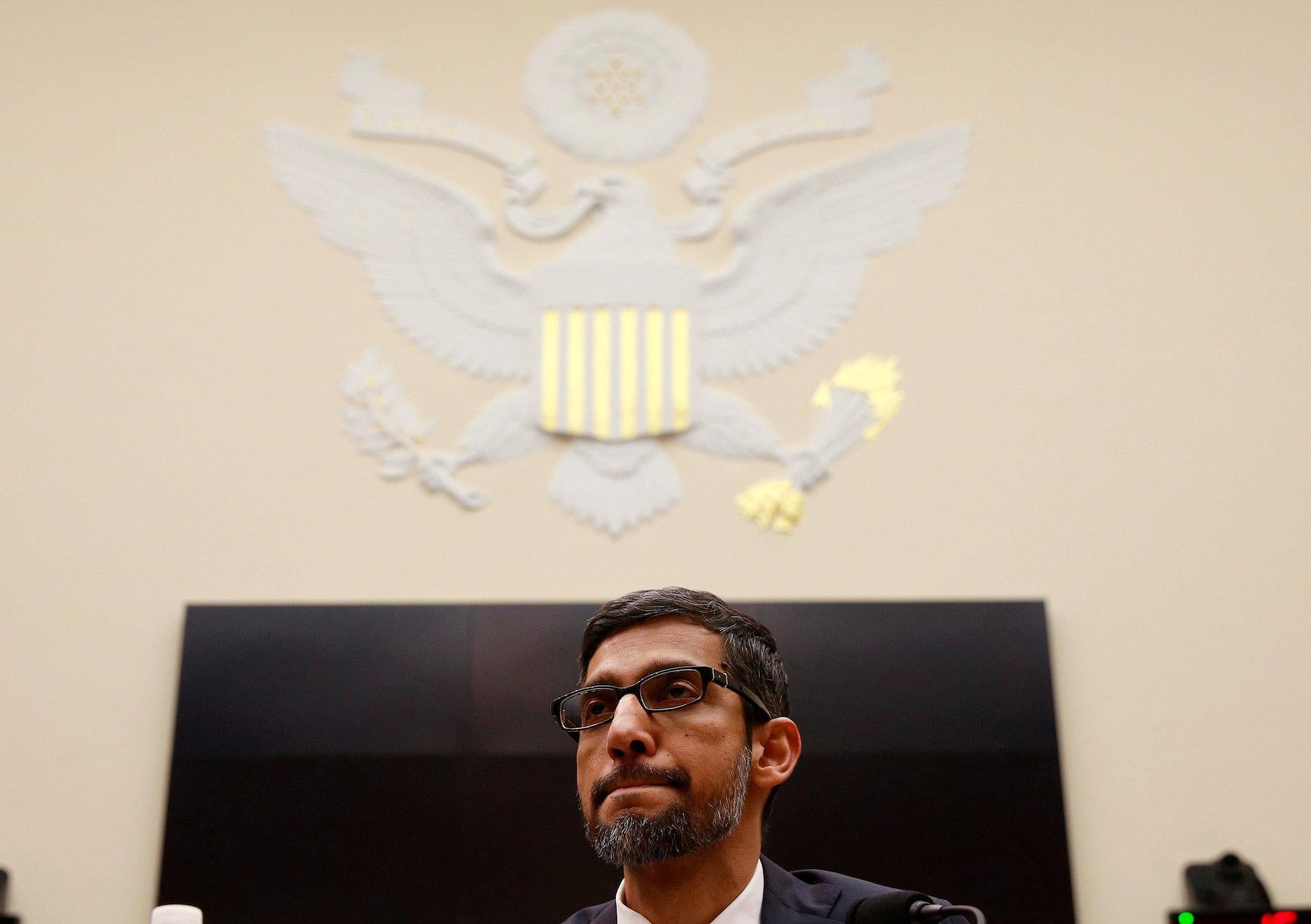Google boss Sundar Pichai responds to vast number of YouTube conspiracy theories
'This is an area we acknowledge there’s more work to be done'

Google's boss has been forced to defend YouTube over the vast number of conspiracy theories that flood the site.
YouTube is filled with strange conspiracy theories: many of them extreme, including claims that high-profile politicians are involved in satanic rituals. What's more, many of them prove very popular, leading them to be recommended to users who might have intentionally sought them out.
During testimony to the US Congress, chief executive Sundar Pichai was asked about how YouTube has allowed those huge numbers of extremist videos to flood across the site.
Questions in particular focused on "Frazzledrip", a conspiracy theory that alleges several high-profile celebrities and politicians are involved in satanic rituals, sexual abuse and other strange behaviour. Dozens of videos can be found on the site that claim to contain evidence of the theory.
He said he was not aware of the specifics of that growing conspiracy theory. But he answered questions about how such videos are able to spread – and whether it is doing enough to get rid of them.
One Democrat representative asked whether it was his "basic position that this is something you want to try to do something about, but there’s just an avalanche of such material, and there’s nothing really to be done, so it should just be buyer beware when you go on YouTube?”
Mr Pichai suggested he did not agree with that idea but that there was more to be done to protect its users.
“We are constantly undertaking efforts to deal with misinformation," he said. "We have clearly stated policies and we have made lots of progress in many of the areas where over the past year — so, for example, in areas like terrorism, child safety, and so on.
"We are looking to do more."
YouTube does not have explicit policies against videos that tell falsehoods, though it has made some efforts to counter misinformation as it spreads across the site.
Join our commenting forum
Join thought-provoking conversations, follow other Independent readers and see their replies
Comments
Bookmark popover
Removed from bookmarks